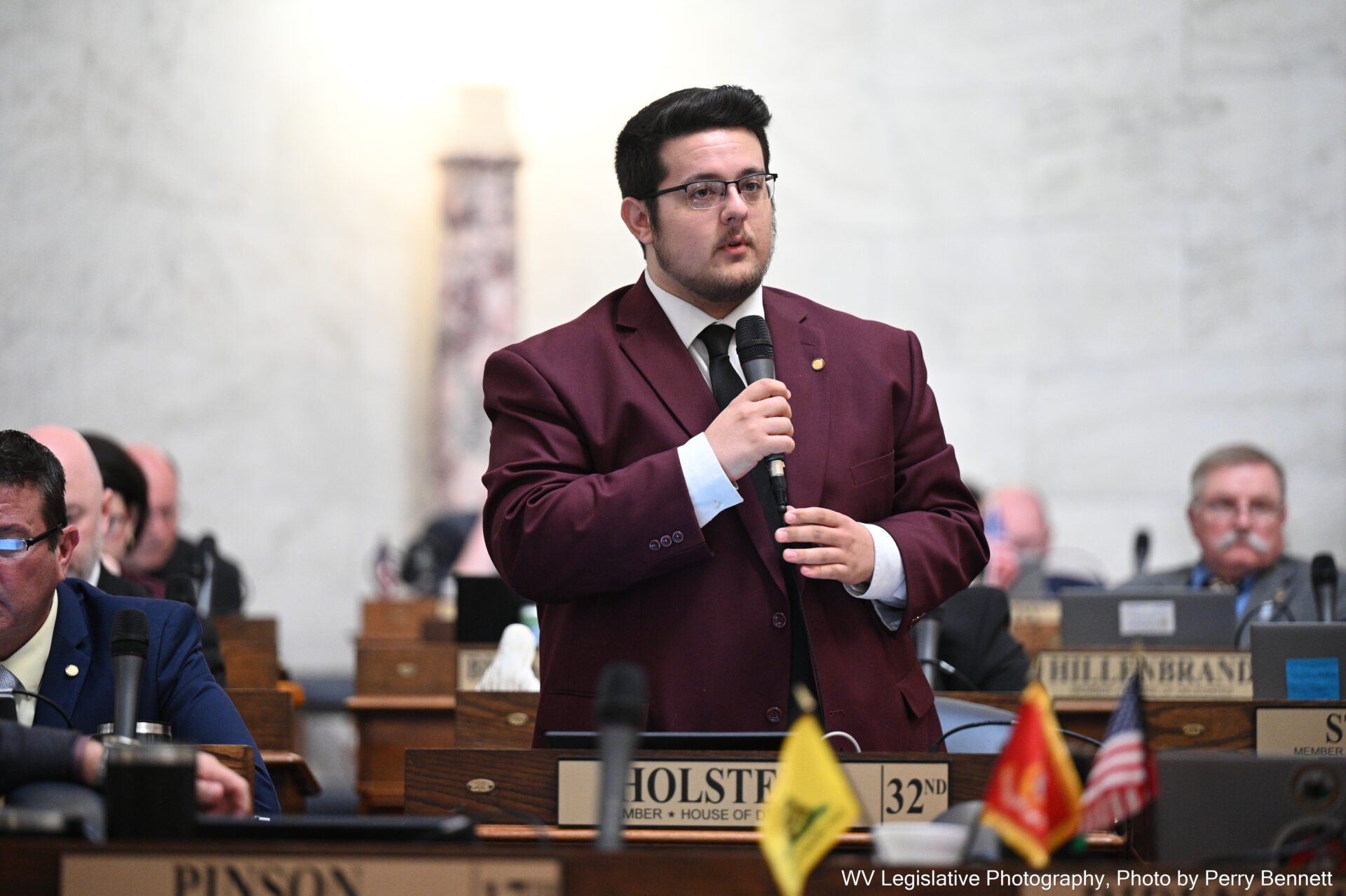Among the bills passed in the regular state legislative session dealing with voters and elections, and one that faced partisan scrutiny, eliminates a candidate’s filing deadline.
Signed by Gov. Jim Justice on March 27, the last day to do so, House Bill 4350 says if no one files as a party candidate for an elected office after the filing deadline, that vacancy may not be filled. Previously, the party executive committee had 17 days after that deadline to appoint a nominee. The change eliminates that practice except in certain circumstances, including no one filing to run for the position at all, death, disqualification or resignation of a candidate.
The bill sponsor, Del. Josh Holstein, R-Boone, said the change gives voters security in knowing who is running for office. And, he said it allows that someone hasn’t been tossed on the ballot just for political purposes.
“A function of a party is to recruit candidates, number one, and number two, to win elections,” Holstein said. “If we can’t find an individual for two years leading up to an election, and the three to four week filing period, to get them found, we have to scramble. At the end of that, to find somebody just to toss on, it’s usually not a very high quality person or a high quality candidate, it’s just someone that’s filling a ballot.”
Del. Mike Pushkin, D-Kanawha, and West Virginia Democratic Party chairman, said the legislation hurts voters and only benefits incumbents.
“The only thing that does is make less alternatives, less choices for voters,”Pushkin said. “Democracy works better when we have more choices for voters, when we have more people participating in their democracy. It doesn’t benefit anybody except people already serving in this building.”
West Virginia University Associate Professor of Political Science Scott Critchlow noted that many West Virginia election districts have small populations. He said each of the 100 House of Delegates districts have less than 20,000 people, and that can create a challenge for political parties to find candidates.
“What the practice has been so far is to allow for the people to register after the filing deadline, in case you didn’t get somebody in one of those very, very small, 100 districts,” Critchlow said. “This will stop that practice. And effectively, that’s going to mean that voters don’t have a choice when they go to the polls in November.”
Critchlow also said that House Bill 4350 was voted on by politicians, and noted that many of them could see it as in their own best interest to have fewer possible people run against them as they seek reelection.
“The filing deadline in West Virginia is in January,” Critchlow said. “So just take the last few months as an example. Somebody might know in January that they’re not going to face a person running against them in November. That means that for the entire legislative session from January to March, they can vote however they want to without having to worry about the voters.“
In response, Holstein said he rejects Critchlow’s entire premise, saying the legislation does not impact an incumbent and it preserves election integrity.
“What folks need to know is this preserves the situations where neither major party files a candidate,” Holstein said. “It still allows them to go out for that additional two weeks and seek somebody, so that’s still intact. All this does, it preserves death, it preserves withdrawal, it preserves eligibility, it preserves if no one has filed. All this does is say, if you have not filed during this entire period, and you’ve had two years from the last election cycle to prepare, you’re no longer eligible to be a candidate.”
House Bill 4350 takes effect Jan. 1, 2025.
